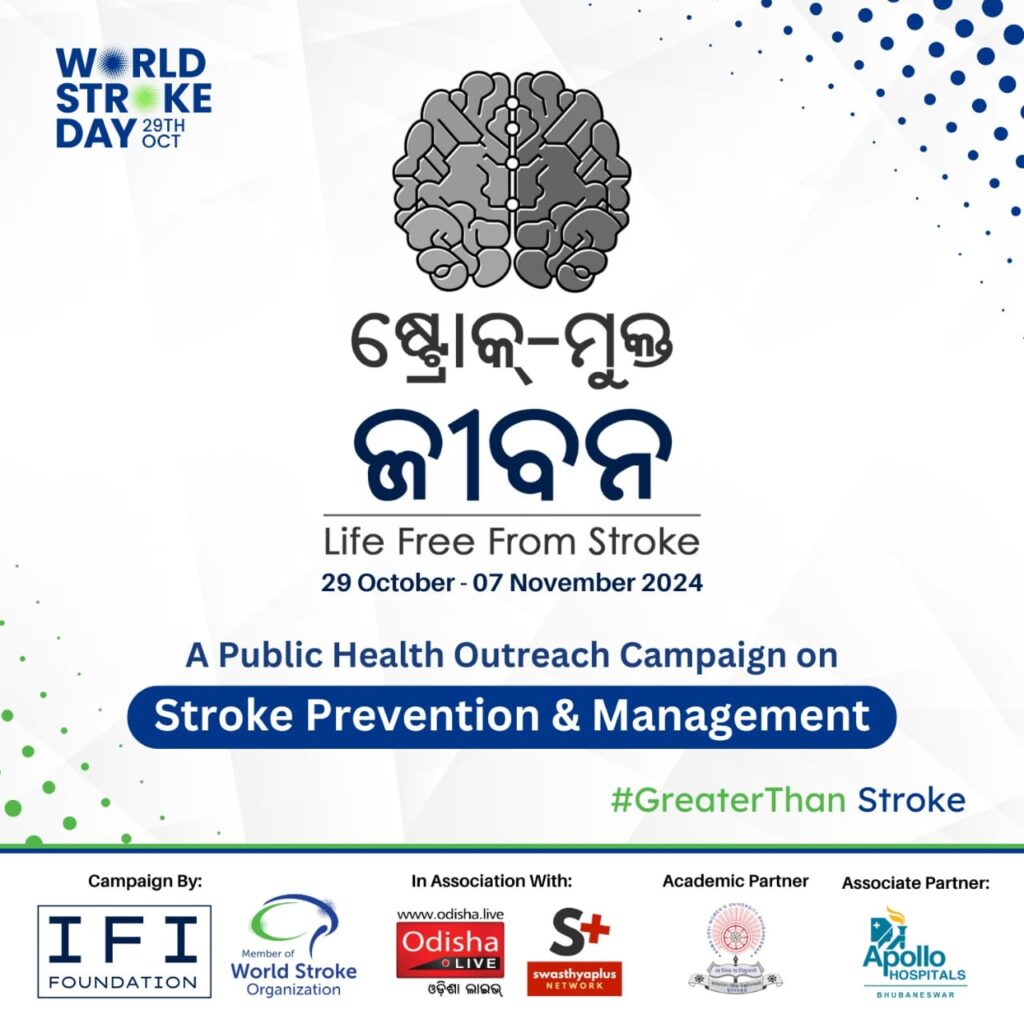Taking care of your mental health will help reduce your risk of stroke
OdishaPlus Bureau

How does mental health affect our stroke risk?
Around 1 in 6 strokes are linked to depression and stress. People who experience poor mental well-being are almost two times greater risk of stroke and TIA (mini strokes) particularly in adults who are middle-aged and older.
Why does poor mental health increase stroke risk?
Stress causes the body to release hormones which aren’t harmful if the stress is short lived, however when the body experiences persistent stress these hormones can lead to hardening of arteries and blood vessels, this causes a condition called atherosclerosis which is linked to stroke.

Depression has been linked to hypertension and atrial fibrillation (an irregular heart beat) both as a cause and an effect. As people with hypertension and AF are more likely to experience stroke and as these conditions are under-diagnosed, increased stroke risk could be linked to hypertension and AF. (See our website for more information resources on high blood pressure, AF and stroke) There is also some evidence that depression can make the blood more likely to clot more easily which also increases the risk of stroke.
How can I reduce my risk?
Taking care of your mental health will help reduce your risk. If you are depressed or experience a lot of stress in your life talk to a health professional about therapies or medication that might be right for you.
It is also very important that you take care of your physical health and take action on other stroke risk factors such as diet, exercise, smoking and alcohol. Taking steps to reduce these risks will lower your overall risk of stroke and some will also help to improve your mental health. Exercise in particular will not only reduce your risk of stroke, it has also been proven to reduce stress and is as effective as anti-depressant medication for people with mild to moderate depression.
Can anti-depressant medications affect my risk of stroke?
Some research has indicated that taking a type of antidepressant called an SSRI (selective serotonin reuptake inhibitor) can increase your risk of stroke. This risk is for strokes that are caused by bleeding in the brain. The risk is however very low – equivalent to 1 more stroke per 10,000 people per year. If your doctor suggests SSRIs as a treatment for depression, you shouldn’t let this research put of taking SSRIs.
Your doctor may want to consider other medications if you have had a brain bleed before, are on blood thinning medication or if you regularly drink a lot of alcohol.
1 in 4 people are at risk of stroke in their lifetime, but by taking simple steps almost all strokes can be prevented.
(Courtesy: World Stroke Organization)
#WorldStrokeDay2024 #GreaterThanStroke #BrainStroke



























